This is Sparta! Part I
But after the Romans, we all now call this state Sparta.
According to Homer, story Sparta goes into remote antiquity, and even the Trojan War began because of the abduction of the Spartan queen Helena by prince Paris. But the events that could become the basis of the Iliad, the Small Iliad, Cyprian, the poems of Stesichore and some other works, date back to the 13th-XIIth centuries by most modern historians. BC. And the well-known Sparta was founded not earlier than the 9th-8th centuries. BC. Thus, the story of the abduction of Helen the Beautiful, apparently, is an echo of the Dospartan legends of the peoples of the Cretan-Mycenaean culture.
At the time of the appearance on the territory of Hellas, the Dorian conquerors, Achaeans lived on these lands. The ancestors of the Spartans consider the people of three Dorian tribes - Diman, pamphilus, Guilleus. They are believed to have been the most warlike among the Dorians, and therefore advanced farthest. But perhaps it was the last "wave" of the Dorian settlement and all other areas were already captured by other tribes. The defeated Achaeans, for the most part, were turned into state serfs - helots (probably from the root hel - captivate). Those of them who managed to retreat to the mountains, after a while were also subdued, but received a higher status of perieks ("living around"). Unlike the helots, the periki were free people, but their rights were limited, they could not take part in public meetings and in governing the country. It is believed that the actual number of Spartans never exceeded 20 – 30 thousand people, of whom from 3 to 5 thousand were men. All capable men were part of the army, military education began with 7 years and lasted until 20. Perki was from 40 – 60 thousand people, helots - about 200 thousand. There is nothing supernatural for ancient Greece in these figures. In all states of Hellas, the number of slaves exceeded the number of free citizens by an order of magnitude. Athenaeus in the "Pir of the Wise Men" reports that, according to the Demetrios census from Phaleres in "democratic" Athens, there were 20 thousands of citizens, 10 thousands of metecs (part-time residents of Attica - immigrants or freed slaves) and 400 thousands of slaves - this is consistent with the calculations of many historians . In Corinth, according to the same source, there were 460 thousands of slaves.
The territory of the Spartan state was a fertile valley of the River Evroth between the Parnon and Tayget mountain ranges. But Laconica also had a significant drawback - the coast was uncomfortable for navigation, which is probably why Spartis, unlike residents of many other Greek states, did not become skilled navigators and did not establish colonies on the coast of the Mediterranean and Black Seas.
Archaeological finds suggest that in the archaic era the population of the Spartan region was more diverse than in other states of Hellas. At that time, there were three types of people among the inhabitants of Laconica: “flat-faced” with wide cheekbones, with people of the Assyrian type and (to a lesser extent) with people of the Semitic type. On the first images of warriors and heroes, you can most often see “Assyrians” and “flat faces”. In the classical period of the history of Greece, the Spartans are portrayed as people with a moderately flat face and with a moderately prominent nose.
The name "Sparta" is most often associated with the ancient Greek word meaning "human race", or close to it - "sons of the earth." This is not surprising: many peoples call their fellow tribesmen as “people”. For example, the self-name of the Germans (Alemans) means “all people”. Estonians previously called themselves "the people of the land." The ethnonyms "Magyar" and "Mansi" are descended from one word meaning "people". And the self-name Chukchi (lourafetlan) means “real people” at all. In Norway there is an ancient saying that literally translates into Russian as follows: "I love people and foreigners." That is, foreigners have the right to be called people politely denied.
It should be said that in addition to the Spartans, Sparta lived in Hellas, and the Greeks never confused them. Sparta means “scattered”: the origin of the word is connected with the legend about the abduction by Zeus of the daughter of Phoenician king Agenor - Europe, after which Cadmus (the name means “ancient” or “eastern”) and his brothers were sent by his father to search, but “scattered” around the world, and not finding it. According to the legend, Cadmus founded Thebes, but then, according to one version, he and his wife were expelled to Illyria, and according to another, they were turned into serpents by the gods, and then into the mountains of Illyria. The daughter of Cadmus Eno destroyed Hera because she fed Dionysus, the son Acteon died after the murder of the sacred deer Artemis. From the kind of sparts came the famous commander of Thebanians Epaminondas.
Not everyone knows that originally Athens was not, but Sparta was the generally recognized cultural center of Hellas - and this period lasted for several hundred years. But then in Sparta, the construction of stone palaces and temples suddenly ceases, ceramics are simplified, and trade begins. And the main business of the citizens of Sparta becomes war. Historians believe that the cause of this metamorphosis was the opposition of Sparta to Messenia, a state whose area was then larger than that of Lacedemon, and which greatly exceeded it in terms of population. It is believed that the most irreconcilable-minded representatives of the old Achaean nobility, who did not accept defeat and dreamed of revenge, took refuge in this country. After two hardest wars with Messenia (743-724 BC and 685-668 BC), the “classic” Sparta was formed. The state has become a military camp, the elite have practically given up privileges, and all those who can wear weapon citizens became warriors. The Second Messenian War was especially terrible, Arkady and Argos were on the side of Messiah, at some point Sparta was on the verge of a military catastrophe. The morale of its citizens was undermined, men began to shy away from war - they were immediately turned into slavery. It was then that the Spartan custom of cryptosis — the night hunt of young men for helots, appeared. Of course, there was nothing to be afraid of respectable helots, on whose labor the well-being of Sparta was built. Recall that the Helots in Sparta belonged to the state, but at the same time were assigned to those citizens whose allotment they were processing. It is unlikely that someone from the Spartiats would have been pleased to hear that his serfs were killed by teenagers who had broken into their house at night, and that he now had problems with siscity contributions (with all the ensuing consequences, but more on that later). And what is the prowess of such night attacks on sleeping people? It was all wrong. Detachments of Spartan youths at that time went on night “duty” and caught on the roads those helots who intended to flee to Messinia or wanted to join the rebels. Later this custom turned into a war game. In peacetime, on the night roads, the Helots met infrequently. But if they, nevertheless, came across - were considered a priori guilty: the Spartans believed that at night the serfs should not hang around the roads, but sleep in their beds. And, if the ilot left home at night, it means that he intended to commit a betrayal or some kind of crime.
In the II Messenian War, the victory of the Spartans brought a new combat system - the famous phalanx, which for centuries dominated the battlefields, literally sweeping away opponents in its path.
Soon, the enemies guessed to put lightly armed Peltasts in front of their ranks, who fired short spears at the slowly moving phalanx: they had to throw a shield with a heavy dart thrown at it, and some of the soldiers were vulnerable. The Spartans had to think about the protection of the phalanx: young lightly armed warriors, often recruited from the mountaineers, began to disperse the Peltasts.
After the formal termination of the II Messenian War, the guerrilla war continued for some time: the rebels, entrenched on the mountain border with Arcadia Ira, laid down their arms only after 11 years - under the agreement with Lacedemon, they left for Arcadia. The remaining Messenians in their land were turned into helots: according to Pausanias, under the terms of the peace treaty they had to give half of the harvest to Lacedaemon.
So, Sparta was able to use the resources of the conquered Messenia. But there was another very important consequence of this victory: the cult of heroes and the ritual of honoring warriors appeared in Sparta. In the future, from the cult of the heroes of Sparta passed to the cult of military service, in which conscientious fulfillment of duty and unquestioning obedience to the orders of the commander were valued above personal feats. The famous Spartan poet Tirtey (participant in the II Messenian War) wrote that the duty of a warrior was to stand shoulder to shoulder with his comrades and not try to show personal heroism to the detriment of military order. In general, do not pay attention to what is happening on your left or right, keep your line, do not back down and do not go ahead without order.
The famous diarchy of Sparta, the reign of two kings (archetypes), was traditionally associated with the cult of the Dioscuri twins. According to the most famous and popular version, the first kings were the twins Proclus and Eurysthenes - the sons of Aristodemus, a descendant of Hercules, who died during a campaign in Peloponnese. They allegedly became the ancestors of the clans of Evripontidov and Agidov (Agiadov). However, the kings-co-rulers were not relatives, moreover, they were descended from hostile clans, as a result of which a unique ritual of the monthly mutual vow of kings and ephors appeared. The Euripontids tended to sympathize with Persia, while the Agiads led the anti-Persian “party”. The royal dynasties did not enter into marriage unions, they lived in different parts of Sparta, each of them had its own sanctuaries and its burial places. And one of the kings led descent from the Achaeans!
Part of the power of the Achaeans and their kings Agiadam returned Lycurgus, who was able to convince the Spartans that the deities of the two tribes reconcile if the royal power is divided. At his insistence, the Dorians had the right to organize holidays in honor of the conquest of Laconica no more than once in 8 years. The Achaean origin of the Agiads is repeatedly confirmed in various sources and is beyond doubt. Tsar Cleomenes I in 510 BC said to the priestess of Athena, who did not want to let him into the temple on the grounds that it was forbidden for male Dorians to enter it:
"Woman! I am not a Dorian, but an Aheian!"
The poet Tirtey, who was already mentioned, spoke of full-fledged Spartans, as of newcomers worshiping Apollo, who came to the city of Heraclides that became their homeland:
With them, leaving Eriney far away, blown by the wind,
We have come to a wide expanse in the land of Pelopa.
So to us from the magnificent temple Apollo-Long-Believer spoke,
Our golden-haired god, with a bow silver king. "
The patron god of the Achaeans was Hercules, the Dorians more than all the gods honored Apollo (translated into Russian, the name means “The Baneler”), the descendants of the Mykene worshipers worshiped Artemis of Orthia (more precisely, the goddess of Ortia, later identified with Artemis).
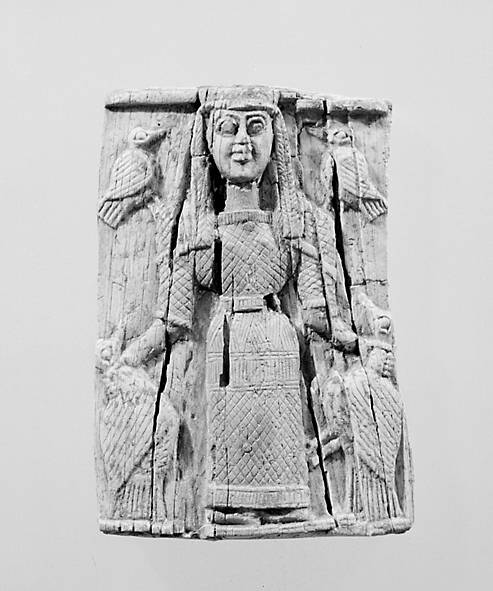
The laws of Sparta (Sacred Contract - Retra) were consecrated in the name of Apollo Delphi, and the ancient customs (retma) were recorded in the Achaean dialect.
For the aforementioned Cleomenes, Apollo was a strange god, therefore, once he allowed himself to falsify the Delphic oracle (to defame his rival - Demarat, king of the Evrypontids clan). For the Dorians, this was a terrible crime, as a result, Cleomenes was forced to flee to Arcadia, where he found support, and also began to prepare an uprising for the helots in Messenia. Frightened Efory persuaded him to return to Sparta, where he found his death - according to the official version, committed suicide. But Kleomen treated the Achaean cult of Hera with great respect: when the Argassian priests prevented him from sacrificing in the temple of the goddess (and the Spartan king also performed priestly functions), he ordered his subordinates to drive them away from the altar and flog them.
The famous tsar Leonid, who stood by Thermopylae on the path of the Persians, was Agiad, that is, Achaean. He brought with him only 300 spartiats (probably, it was his personal bodyguard-gippei, relying on each king - contrary to the name, these soldiers fought on foot) and several hundred perieks (Leonid had also troops of the Greek allies, but more on this will be described in the second part). And the Dorians of Sparta did not go on the march: at that time they were celebrating the holy feast of Apollo of Carney and could not interrupt it.
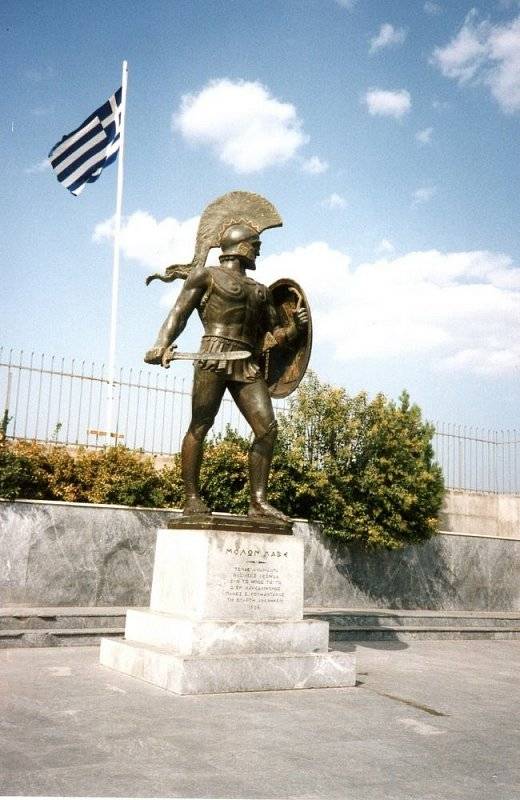
Gerusia (Council of Elders, consisting of 30 people - 2 king and 28 geronts - Spartiates who reached the age of 60 years, elected for life) was controlled by Dorians. The people's assembly of Sparta (Apella, 30 Spartates years and older had the right to participate in it) did not play a large role in the life of the state: it merely approved or rejected the proposals prepared by Gerusia, most of which were determined "by eye" - who would shout louder true. The true power in Sparta of the classical period belonged to five annually elected Efors, who had the right to immediately punish any citizen who had violated the customs of Sparta, but they themselves were not subject to jurisdiction. Efory had the right to court over the kings, controlled the distribution of military production, the collection of taxes and the conduct of military set. They could also expel suspicious foreigners from Sparta and supervise the amycles and perieks. Efory did not regret even suspected by them in an attempt to become a tyrant of the hero of the battle of Plataeus - Pausanias. The regent's son of the famous Leonid, who tried to hide from them at the altar of Athena Mednodomnoy, was immured in a temple and died of starvation. The ephors constantly suspected (and sometimes rightly) the Achaean kings of flirting with helots and spells and feared a coup d'état. The king from the Agid family during the campaign was accompanied by two ephors. But for the kings of Euripontides sometimes exceptions were made, they could be accompanied by only one ephor. The control of the ephors and gerusios over all matters in Sparta gradually became truly total: the kings were left only as priests and military leaders, but they were deprived of the right to independently declare war and make peace, and even the route of the upcoming campaign was assured by the Council of Elders. Kings, who seemed to be honored by people closer than others to the gods, were all the time suspected of treason and even bribes, as if received from the enemies of Sparta, and the trial of the king was commonplace. In the end, the kings were practically deprived of priestly functions: in order to achieve greater objectivity, the clergy began to be invited from other states of Hellas. Decisions on vital issues continued to be made only after receiving the Delphic oracle.
The absolute majority of our contemporaries are convinced that Sparta was a totalitarian state, whose social structure is sometimes called “war communism”. Spartiats are considered by many to be invincible “iron” warriors, who were not equal, but at the same time stupid and limited to people who spoke in monosyllabic phrases and spent all the time in military exercises. In general, if you drop the romantic aura, you get something like Lyubertsy Gopnik of the end of 80-x - the beginning of the 90-s of the XX century. But are we, Russians, walking around the streets with a bear in their arms, a bottle of vodka in their pockets and a balalaika ready to marvel at the black PR and believe the Greeks of Sparta’s hostile policies? In the end, we are not the notoriously famous Briton Boris Johnson (the former mayor of London and the former foreign minister), who quite recently, having suddenly read Thucydides in his old age (here, truly, “not in horse feed”) compared ancient Sparta with modern Russia, and Great Britain and the USA, of course, with Athens. It is a pity that even Herodot did not read. He especially would have liked the story of how the progressive Athenians threw Darius’s ambassadors off a cliff — and, as befits the true lights of freedom and democracy, proudly refused to apologize for this crime. Not that the stupid totalitarian Spartans, who, after drowning the Persian ambassadors in the well ("land and water" offered to search it), considered it fair to send two high-ranking volunteers to Darius - so the king could do the same to them. And it’s not that the Persian barbarian Darius, who, you see, didn’t want to drown, or hang up, or quarters, the Spartians who came to him, is a wild and ignorant Asian, you can’t call it any different.
However, the Athenians, the Thebans, the Corinthians and other ancient Greeks certainly differ from the Boris Johnsons, since, according to the same Spartans, they all knew how to be fair - once every four years, but they did. Nowadays even this one-time honesty is a great surprise, since now and at the Olympics honest to be obtained is not very and not with all.
Better than Boris Johnson were the first US politicians - at least, more educated and more intelligent. Thomas Jefferson, for example, also read Fukidida (and not only), and later said that he had learned more from his History than from local newspapers. But the conclusions from his writings made contrary to Johnson's conclusions. In Athens, he saw the arbitrariness of the all-powerful oligarchs and the crowd corrupted by their handouts, happily trampling true heroes and patriots, in Sparta - the world's first constitutional state and the true equality of its citizens.

The "founding fathers" of the American state generally spoke of Athenian democracy as a terrible example of what should be avoided in the new country they headed. But, ironically, contrary to their intentions, it was such a state that eventually came from the United States.
But since the pretending to be called serious politicians are now comparing us with ancient Sparta, let's try to deal with its polity, traditions and customs. And we will try to understand whether this comparison should be considered offensive.
Trade, handicraft, farming and other gross physical labor were indeed considered in Sparta as occupations unworthy of a free man. A citizen of Sparta had to devote his time to more exalted things: gymnastics, poetry, music and singing (Sparta was even called the “city of beautiful choirs”). Result: cult for all Hellas “Iliad” and “Odyssey” created ... No, not Homer, but Lycurgus: it was he who, having acquainted himself with the scattered songs attributed to Homer in Ionia, suggested that those are parts of two poems, and arranged them in necessary ”, which became canonical, order. This testimony of Plutarch, of course, cannot be considered the ultimate truth. But, no doubt, he took this story from some sources that had not reached our time, which he trusted completely. And none of his contemporaries, this version did not seem "wild", absolutely impossible, unacceptable and unacceptable. Nobody doubted the artistic taste of Lycurgus and his ability to play the role of literary editor of the greatest poet of Hellas. Let's continue the story of Lycurgus. His name means "Wolf courage", and this is the real kening: the wolf is the sacred animal of Apollo, moreover, Apollo could turn into a wolf (as well as a dolphin, hawk, mouse, lizard and lion). That is, the name Lycurgus can mean "Courage of Apollo." Lycurgus was from the Dorian clan Evripontidov and could have become king after the death of his elder brother, but he refused power in favor of his unborn child. That did not prevent the enemies to accuse him of trying to usurp power. And Lycurgus, like many others who suffer from excessive passionarity of the Hellenes, went on a trip, visiting Crete, some policies of Greece and even Egypt. During this trip, he had thoughts about the reforms needed by his homeland. These reforms were so radical that Lycurgus considered it necessary to first consult one of the Delphic Pythias.
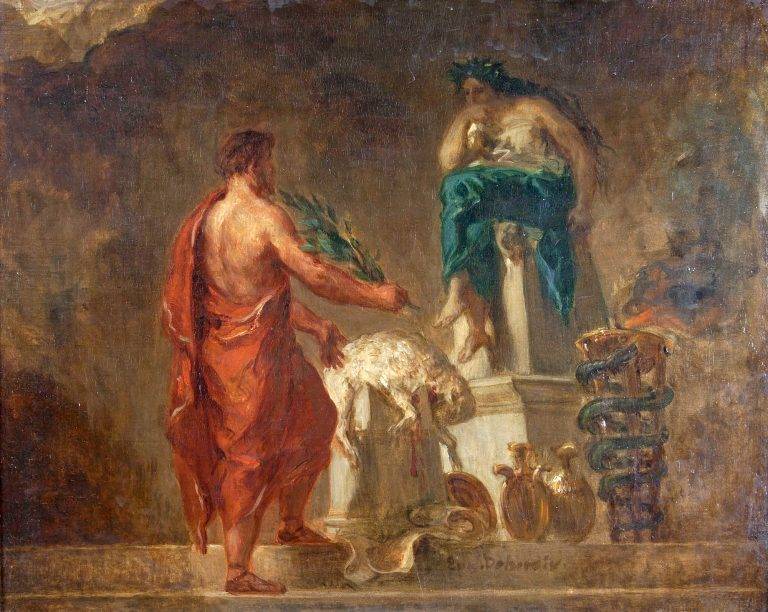
The soothsayer assured him that Sparta would benefit him - and now Lycurgus could not be stopped: he returned home and informed everyone of his desire to make Sparta great. Having heard about the need for reforms and transformations, the king, the same nephew of Lycurgus, quite logically suggested that they would kill him now a little - so that he would not stand in the way of progress and would not overshadow the bright future for the people. And so he immediately ran to hide in the nearest temple. With great difficulty, he was pulled out of this temple and forced to listen to the newly appeared Messiah. Upon learning that his uncle agreed to leave him on the throne as a puppet, the king sighed with relief and did not listen to further speeches. Lycurgus established the Council of Elders and the Collegium of Ephors, divided the land equally among all Spartiates (it turned out 9 000 of allotments, which the helots attached to them were supposed to process), prohibited the free circulation of gold and silver in Lacedaemon, and practically eliminated long years of bribery and corruption. Now the Spartiats were supposed to eat exclusively at joint meals (sissitiyah) - in the social dining rooms assigned to each of the citizens on 15 people, who should have been very hungry: the poor appetite could be deprived of the citizenship for bad appetite. He also lost his citizenship from one of the Sparties who could not make a contribution for sissitziyu in time. The food at these joint meals was abundant, healthy, nourishing and rough: wheat, barley, olive oil, meat, fish, diluted with 2 / 3 wine. And, of course, the famous "black soup". It consisted of water, vinegar, olive oil (not always), pork legs, pork blood, lentils, salt - according to numerous testimonies of contemporaries, foreigners could not even eat spoons. Plutarch argues that one of the Persian kings, having tasted this soup, declared:
And the Spartan commander Pausanias, having tasted the food prepared by Persian chefs after the victory at Platai, said:
If you believe J. Swift, did not like the black soup and Gulliver. The third part of the book (“Journey to Laputa, Balnibarbi, Laggnegg, Glabbdobdrib, and Japan) also refers to calling the spirits of famous people. Gulliver tells:
The Spartiats were evened after death: most of them, even the kings, were buried in nameless graves. Only warriors who fell in battle, and women who died during childbirth, were honored with a gravestone.
Now let's talk about the situation of the unfortunate, repeatedly mourned by different authors, helots and perireks. And upon closer inspection, it turns out that the Lacekemon's peripekes lived very well. Yes, they could not participate in popular assemblies, be elected to Gerousia and the Eforov College, and could not be hoplites — only warriors of auxiliary units. It is unlikely that these restrictions hurt them very much. For the rest, they lived no worse, and often even better than full citizens of Sparta: no one forced them to eat black soup in public "canteens", they did not take children from families to "boarding schools", they did not demand to be heroes. Classes trade and various crafts gave a stable and very decent income, so that in the late period of the history of Sparta, they were richer than many Spartiat. By the way, the perieks, by the way, had their own slaves — not state (ilots), like those of the Spartiats, but personal, purchased ones. Which also speaks of the rather high well-being of the pericles. The farmers-ilots, too, did not particularly live in misery, since, unlike the same "democratic" Athens, there was no point in tearing three skins from slaves in Sparta. Gold and silver were banned (the death penalty was the punishment for their storage), it was impossible for anyone to save bars of spoiled iron (everyone's weight was 625), and it was impossible even to eat normally in their home - poor appetite at common meals, as we remember, was punishable. Therefore, the Spartiates from the otlots assigned to them did not demand much. As a result, when Tsar Kleomen III suggested that helots get personal freedom by paying five minutes (more than 2 kg of silver), six thousand people were able to pay the ransom. In the "democratic" Athens, the burden on the tax-paying classes was many times greater than in Sparta. The “love” of the Athenian slaves to their “democratic” masters was so great that when the Spartans occupied Dekeleus (district, north of Athens) during the Peloponessian war, around these Xlots, 20 000 went over to Sparta. But even the most cruel exploitation of the local "helots" and "pereikov" did not provide for the requests of aristocrats who were accustomed to luxury and depressed ochlos, they actually had to rob the Allied policies, which very quickly understood how dearly the Athenian democracy cost them. From the allied states, Athens collected funds for a "common cause", which almost always proved to be beneficial to Attica and only Attica. In 454 g. BC. the general treasury was transferred from Delos to Athens and spent on decorating this city with new buildings and temples. At the expense of the Allied treasury, the Long Walls were built, connecting Athens with the port of Piraeus. In 454 was до н.э. The total contribution of the union policies was 460 talents, and in 425 - already 1460. To compel allies to loyalty, the Athenians created colonies on their lands - as in the lands of barbarians. In the cities of particularly unreliable housed Athenian garrisons. Attempts to withdraw from the Union of Delos ended in "color revolutions" or direct military intervention by the Athenians (for example, in Naxos in 469, on Phasos in 465, on Euboea in 446, on Samos in 440 – 439. BC) In addition, they also extended the jurisdiction of the Athenian court ("the most just" in Hellas, of course) to the territory of all their "allies" (which, rather, should still be called tributaries). The United States is now doing just the same with the allies, and the most "democratic" state of the modern "civilized world". And so much is the friendship with Washington, which stands guard over "freedom and democracy."
The children in Sparta were declared public domain. A lot of stupid tales have been told about the upbringing of Sparta’s boys, which, alas, are still printed even in school textbooks. On closer examination, these bikes do not stand up to scrutiny and crumble literally before our eyes. In fact, studying in Spartan schools was so prestigious that they brought up many children of noble foreigners, but not all of them - just having some merit before Sparta.
The system of education of boys was called "agoge" (literally from Greek - "withdrawal"). Upon reaching the 7 age, the boys climbed from their families and were transferred to their mentors, experienced and authoritative Spartiates. They lived and were brought up in some kind of boarding school (agel) until 20 years. This should not be surprising, because in many countries the children of the elite were brought up in about the same way - in closed schools and under special programs. The most striking example is the United Kingdom. The conditions in private schools for children of bankers and lords are still more than harsh there, they haven’t even heard about heating in winter, but up to 1917, parents were annually charged money for the rod. Direct prohibition of the use of corporal punishment in public schools in Britain was introduced only in 1986, in private - in 2003.
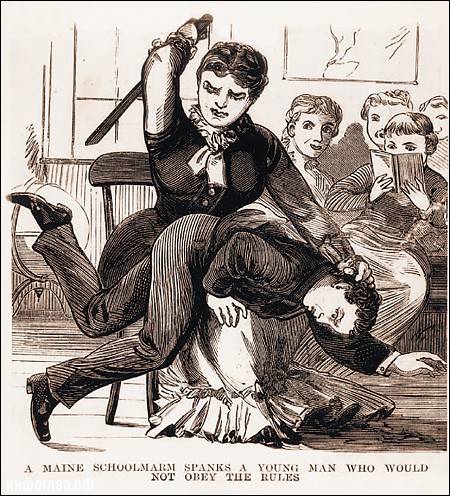
In addition, in British private schools, it is considered normal that the Russian army is called "hazing": the unconditional subordination of junior high school students to senior classmates - in Britain, they believe that this tempers the character of a gentleman and gentleman, teaches to obey and command. The current heir to the throne, Prince Charles, admitted once that in the Scottish school Gordonstown he was beaten more often than the others - they simply lined up in a queue: because everyone knew how pleasant it would be to tell the king at the dinner table about how he had filled the face of the king. (The cost of schooling in Gordonstown: for children 8-13 years - from 7 143 pounds per trimester; for teenagers 14-16 years - from 10 550 to 11 720 pounds per trimester).
The most famous and prestigious private school in the UK is Eton College. The Duke of Wellington even said, somehow, that "the Battle of Waterloo was won on the sports grounds of Eton."
The disadvantage of the British system of education in private schools is quite common in them pederasty. About the same Eaton, the British themselves say that he "stands on three B: beating, bulling, buggery" - corporal punishment, hazing and sodomy. However, in the current Western system of values, this “option” is rather an advantage than a disadvantage.
A small reference: Eaton is the most prestigious private school in England, where children are admitted from 13 years. The registration fee is 390 pounds sterling, the cost of education in one trimester is 13 556 pounds, in addition, health insurance is paid out - 150 pounds, and a deposit is charged to pay current expenses. It is very desirable that the father of the child be a graduate of Eton. Eaton's alumni are 19 British Prime Ministers, as well as Princes William and Harry.
By the way, the famous Hoggwarts school from the Harry Potter novels is an idealized, "combed" and politically correct example of a private English school.
In the Hindu states of India, the sons of rajahs and nobles were brought up far from home — in ashrams. The ceremony of initiation into disciples was viewed as a second birth, submission to the brahman master was absolute and unquestioning (such an ashram was reliably shown in the TV series "Mahabharata" on the channel "Culture").
In continental Europe, girls of aristocratic families for several years were sent to a monastery for upbringing, boys were given to be squires, they sometimes worked on a par with servants, and no one stood with ceremony. Home education, until recently, has always been considered the lot of the "mob".
Thus, as we see now, and we shall see later on, nothing particularly awful and going beyond in Sparta with the boys was not done: a strict male upbringing, nothing more.
Now let us consider the story that has become a textbook, a false story that weak or ugly children were thrown off a cliff. Meanwhile, in Lacedaemon, there was a special class, the “Hypomeyons,” which initially included physically handicapped children of the citizens of Sparta. They did not have the right to participate in the affairs of the state, but freely owned the property that they relied on by the law and were engaged in economic affairs. The Spartan king Agesilaus had been lame since childhood, this did not prevent him from not only surviving, but also becoming one of the most prominent commanders of Antiquity.
By the way, archaeologists have found a gorge into which the Spartans allegedly threw inferior children. And in it, indeed, the remains of people dating from the 6th – 5th centuries were found. BC er - but not children, but 46 adults of men aged from 18 to 35. Probably, this ritual was conducted in Sparta only against state criminals or traitors. And it was an exceptional punishment. For less serious offenses, foreigners were usually expelled from the country, and Spartis were deprived of their citizenship rights. For minor and not representing great public danger misdemeanors were appointed "punishment for shame": the offender walked around the altar and sang a specially composed song that dishonored him.
Another example of “black PR” is the story of “preventive” weekly whipping, which all boys were allegedly subjected to. In fact, in Sparta among the boys once a year at the temple of Artemis Orty held a competition, which was called "diamastigosis." The one who, silently withstand the most strikes of the scourge, won.
Another historical myth: the stories that the Spartan boys were forced to earn their living by stealing, ostensibly to acquire military skills. It is very interesting: what kind of military skills useful to Spartians could be acquired in this way? The main force of the Spartan troops were always heavily armed warriors - the hoplites (from the words hoplone - a large shield).
The children of Sparta citizens were prepared not for secret forays into the camp of the enemy in the style of Japanese ninjas, but for an open battle in the composition of the phalanx. In Sparta, the mentors did not even teach the boys how to fight - “so that they would be proud not of art, but of valor.” When asked if he had seen good people anywhere, Diogenes replied: "Nowhere are good people, good children are in Sparta." In Sparta, according to foreigners, it was "beneficial only to grow old." In Sparta, the guilty in the disgrace of the beggar, asking for alms, believed the one who first gave him and made him a slacker. In Sparta, women had rights and freedom unprecedented and unheard of in the ancient world. In Sparta, prostitution was condemned, and Aphrodite was contemptuously called Peribaso (“walking”) and Trimalitis (“pierced through”). About Sparta, Plutarch tells a parable:
Of course, extramarital affairs were in Sparta. But this story testifies to the existence of a social imperative, such connections that did not approve and condemn.
And this Sparta brought up their children by thieves? Or are these fairy tales about some other, mythical city invented by the enemies of the real Sparta? And, in general, is it possible to grow up children of citizens who are self-confident and loving their homeland, up to half-dead and intimidated by all sorts of prohibitions? Can be, forced to steal a piece of bread, always hungry zamorishy inspiring fear healthy and strong hoplites?
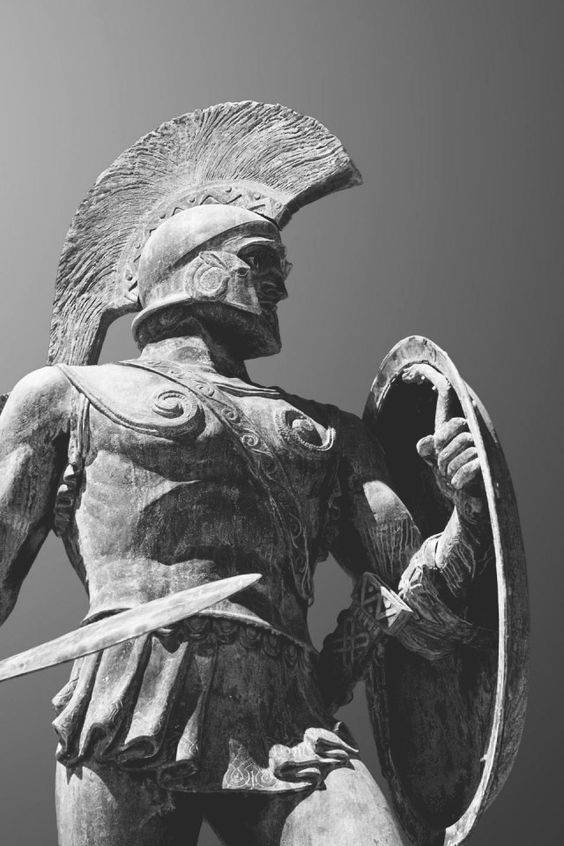
If this story has some kind of historical basis, then it can relate only to the children of the perieks, to whom such skills, indeed, could come in handy while serving in auxiliary units performing intelligence functions. And even in the case of perikeks, this should have been not a system, but a rite, a kind of initiation, after which the children would go to a higher level of education.
Now we will talk a little about homosexuality and the homosexual pedophilia of Sparta and Hellas.
In the work "The ancient customs of the Spartans" (attributed to Plutarch) states:
Other ancient authors (in particular, Elian) also testify that in Spartan Agel, unlike British private schools, there was no real pederasty. Cicero, based on Greek sources, wrote later that between Sparta’s “mastermind” and “listener” were allowed hugs and kisses, they were even allowed to sleep in the same bed, but in this case they should have put a raincoat between them.
If you believe the information that leads in the book "Sexual Life in Ancient Greece" Licht Hans, the most that a decent man could afford for a boy or a youth was to place a penis between his thighs, and nothing more.
Here, Plutarch, for example, writes about the future of King Agesilaus, that "his beloved was Lysander." What qualities attracted Lysander in chrome Agesilae?
The renowned commander unmistakably found and singled out among other teenagers the future great king and famous commander. And we are talking about mentoring, and not about banal sexual intercourse.
In other Greek policies, such highly controversial relations between men and boys were viewed differently. In Ionia, it was believed that the pederasty dishonored the boy and deprived him of masculinity. In Boeotia, on the contrary, the “relationship” of a young man with an adult man was considered practically normal. In Elida, teenagers entered into such a bond for gifts and money. On the island of Crete, there was a custom of “abduction” by an adult male teenager. In Athens, where licentiousness was perhaps the highest in Hellas, pederasty was allowed, but only between adult men. At the same time, homosexual relations were almost everywhere considered to be dishonest by the passive partner. So, Aristotle argues that "against Periandre, a tyrant in Ambracias, a conspiracy was drawn up because during a revel with his lover he asked him if he already became pregnant by him."
The Romans, by the way, went even further in this respect: a passive homosexual (kined, paticus, concubine) was equal in its status to gladiators, actors and prostitutes, did not have the right to vote in elections and could not defend himself in court. Homosexual rape in all countries of Greece and Rome was considered a serious crime.
But back to the Sparta times Lycurgus. When the first children brought up according to his precepts became adults, the aged legislator again went to Delphi. Leaving, he took with the citizens an oath that until his return, his laws would not be amended. At Delphi, he refused to eat and died of starvation. Fearing that his remains would be transferred to Sparta, and citizens would consider themselves free from an oath, before his death he ordered to burn his corpse and throw ashes into the sea.
The historian Xenophon (4th century BC) wrote about the legacy of Lycurgus and the state system of Sparta:
Socrates and Plato believed that it was Sparta who showed the world "the ideal of Greek civilization virtue." Plato saw in Sparta the desired balance of aristocracy and democracy: the full realization of each of these principles of state organization, according to the philosopher, inevitably leads to degeneration and death. His pupil Aristotle considered the universal power of an eforata to be a sign of a tyrannical state, but the election of ephors was a sign of a democratic state. As a result, he came to the conclusion that Sparta should be recognized as an aristocratic state, and not tyranny.
Roman Polybius compared the Spartan kings with the consuls, Gerusia with the Senate, and the Ephors with the stands.
Much later, Rousseau wrote that Sparta was a republic not of humans, but of demigods.
Many historians believe that modern notions of military honor have come to European armies from Sparta.
Sparta maintained its unique state system for a very long time, but it could not last forever. Sparta was ruined, on the one hand, by the desire to change nothing in the state in a constantly changing world, on the other hand, forced partial reforms that only worsened the situation.
As we remember, Lycurgus divided the Land of Lacedaemon into 9000 parts. In the future, these areas began to rapidly break up, since after the death of their father, they were divided between his sons. And, at some point, it suddenly turned out that some of the Spartiat’s income from the inherited land was not enough even for a compulsory contribution for sissism. And a full-fledged law-abiding citizen automatically moved into the category of hypomeyons ("younger" or even, in a different translation, "fallen"): he no longer had the right to participate in public meetings and hold any public office.
The Peloponessian War (431-404 BC), in which the Peloponnesian alliance led by Sparta defeated Athens and the Union of Delos, inexpressibly enriched the Lacedemon. But this victory, paradoxically, only worsened the situation in the country of winners. Sparta’s gold became so much that the ephors lifted the ban on possession of silver and gold coins, but citizens could only use them outside of Lacekemon. Spartis began to keep their savings in the Allied cities or in temples. And many wealthy young Spartans now preferred to “enjoy life” outside Lacedaemon.
Around 400 BC. er in Lacedaemon, the sale of hereditary land was permitted, which instantly fell into the hands of the richest and most influential Spartiates. As a result, according to Plutarch, the number of full citizens of Sparta (of which there were 9000 people under Lycurgus) decreased to 700 (the main wealth was concentrated in the hands of 100 of them), the rest of the citizenship rights were lost. And many of the ruined Spartis left their homeland to serve as mercenaries in other Greek policies and in Persia.
In both cases, the result was the same: Sparta lost healthy strong men - both rich and poor, and became weaker.
In 398 BC, the Spartis who lost their land, led by Kidon, tried to rebel against the new order, but were defeated.
The logical outcome of a comprehensive crisis that engulfed Sparta losing vitality was the temporary subordination of Macedonia. Spartan troops did not participate in the famous Battle of Heronea (338 BC), in which Philip II defeated the combined army of Athens and Thebes. But in 331 BC. the future diadoh Antipater defeated Sparta in the battle of Megaloprol - about a quarter of full-fledged Spartiates and King Agis III died. This defeat permanently undermined the power of Sparta, putting an end to its hegemony in Hellas, and, therefore, significantly reducing the flow of money and funds from its allied states. The property stratification of citizens, which had appeared before, was rapidly growing, the state finally split, continuing to lose people and strength. In the IV. BC Catastrophe turned the war against the Boeotian alliance, whose commanders Epaminondas and Pelapid finally dispelled the myth of the invincibility of the Spartis.
In the III. BC. The kings of Agiad IV and Cleomenes III tried to rectify the situation. Agis IV, who ascended the throne in 245 BC, decided to give citizenship to the part of the pereiki and to worthy foreigners, ordered to burn all debt obligations and redistribute land plots, setting an example, transferring all their lands and all their property to the state. But already in 241, he was accused of seeking tyranny and sentenced to death. Spartis who have lost their drive are indifferent to the execution of the reformer. Cleomenes III (became king in 235 BC) went even further: he killed 4 of the Ephors who interfered with him, dissolved the Council of Elders, abolished debts, freed for ransom 6000 stilts and gave citizenship rights to 4 th thousands of people. He redistributed land again, driving 80 to the richest landowners from Sparta and creating 4000 new plots. He succeeded in subjugating Sparta to the eastern part of the Peloponnese, but in 222 BC his army was defeated by the combined army of the new coalition of the cities of the Achaean Union and their Macedonian allies. Laconia was occupied, reforms abolished. Cleomenes was forced into exile in Alexandria, where he died. The last attempt to revive Sparta was made by Nabis (ruled in 207-192 BC). He declared himself a descendant of King Demarat of the kind of Euripontids, but many contemporaries and later historians considered him a tyrant - that is, a man not entitled to the royal throne. Nabis destroyed the relatives of the Spartan kings of both dynasties, expelled the rich and requisitioned their property. But he freed many slaves without any conditions and gave refuge to all who fled to him from the other polis of Greece. As a result, Sparta lost its elite, Nabis and his henchmen ruled the state. He managed to capture Argos, but in 195 BC The allied Greco-Roman army defeated the army of Sparta, which now lost not only Argos, but also its main seaport, Gitius. In 192 BC Nabis died, after which the royal power in Sparta was finally abolished, and Lacedaemon was forced to join the Achaean alliance. In 147 BC, at the request of Rome, Sparta, Corinth, Argos, Heraclea and Orchomen were withdrawn from the union. And the following year, the Roman province of Achaia was founded throughout Greece.
The Spartan army and military history of Sparta will be discussed in more detail in the next article.
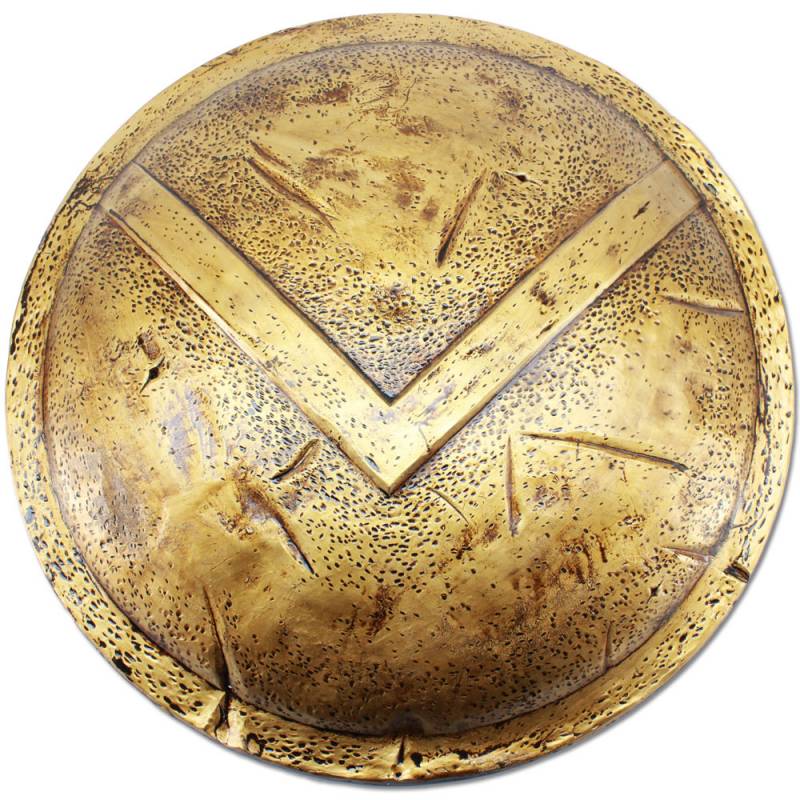
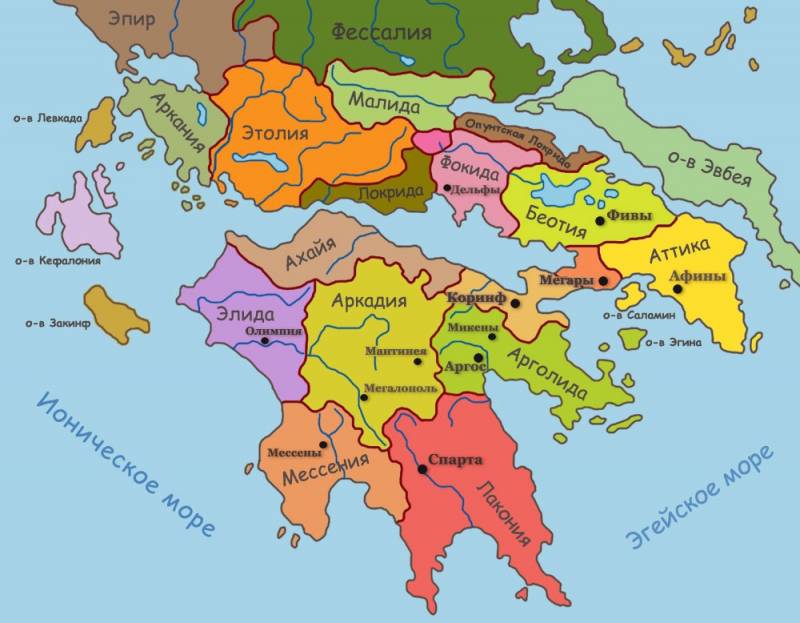
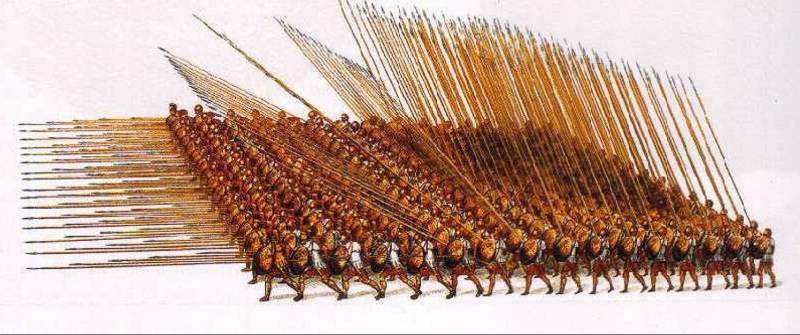
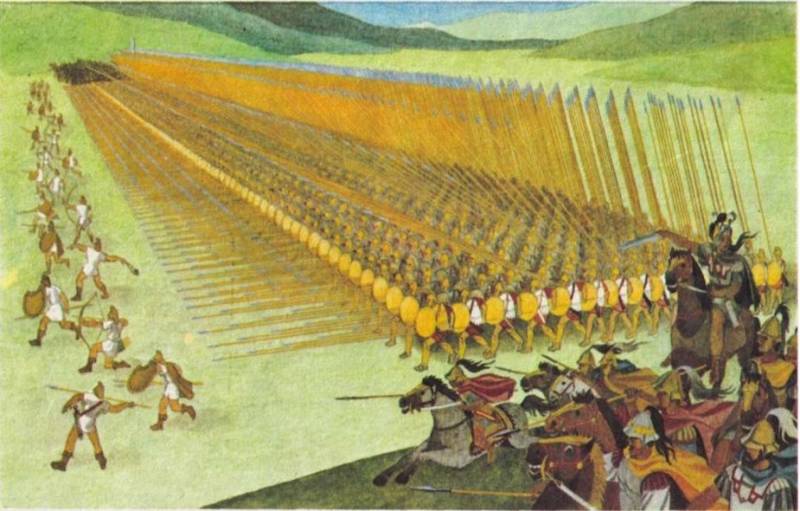
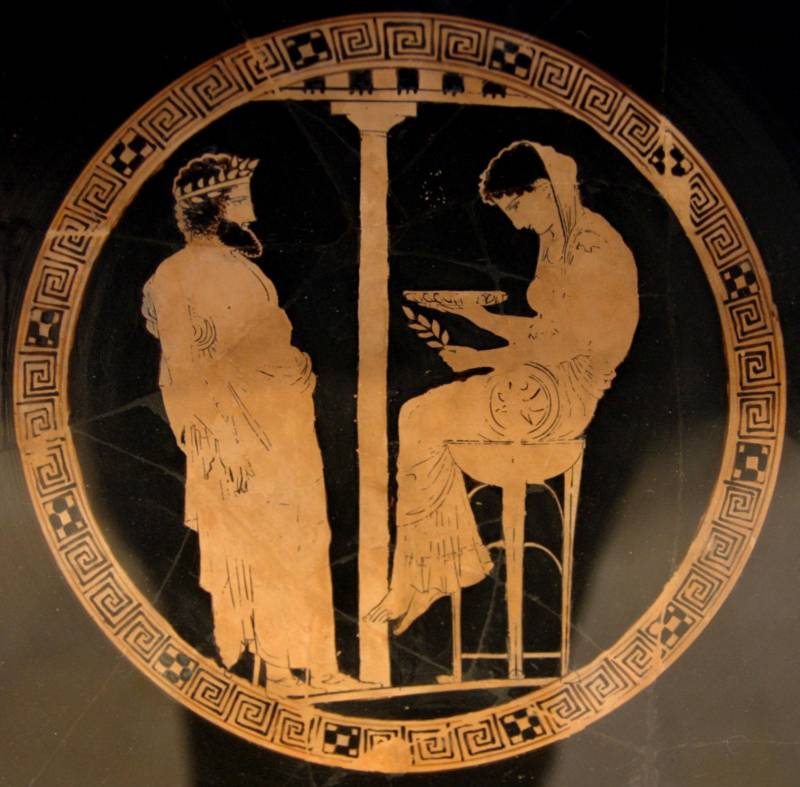
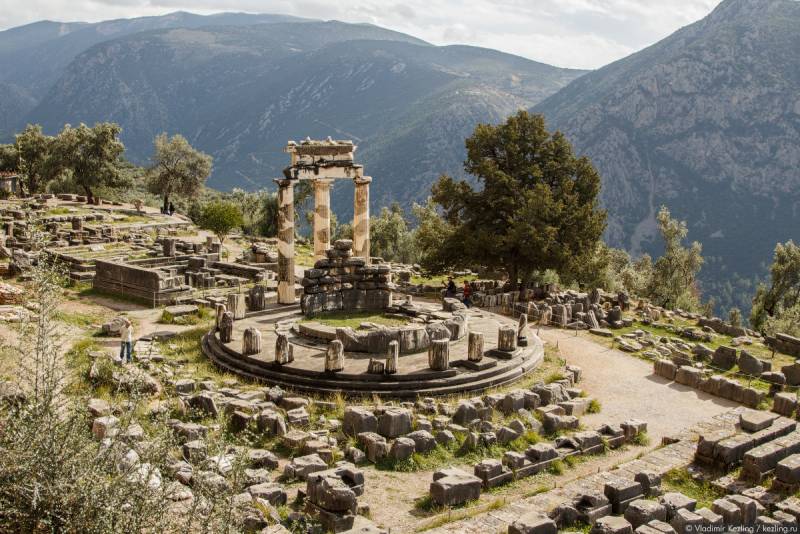
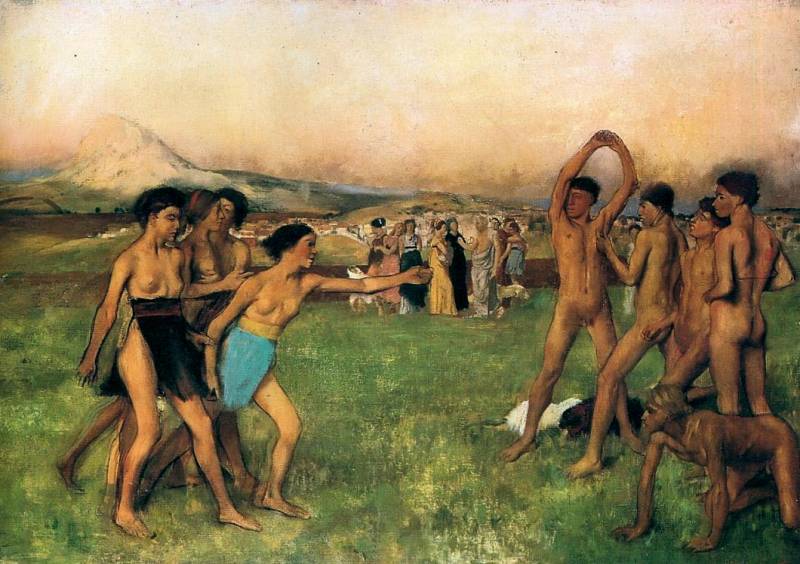
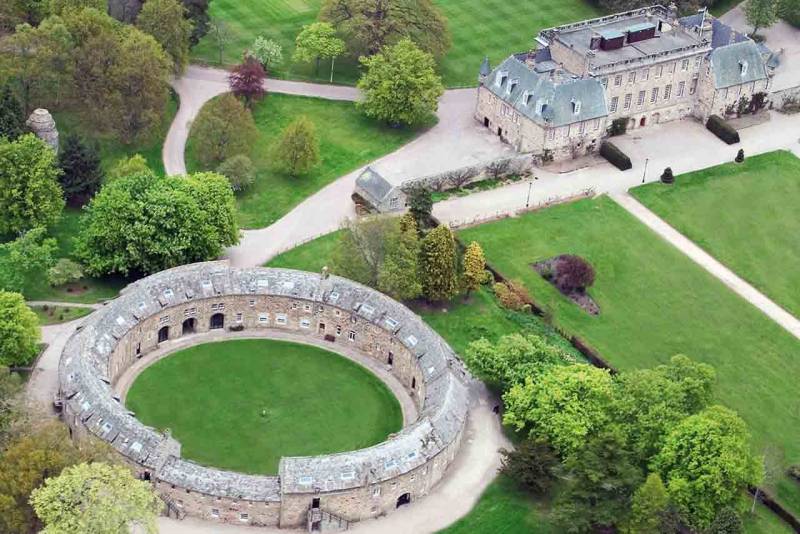
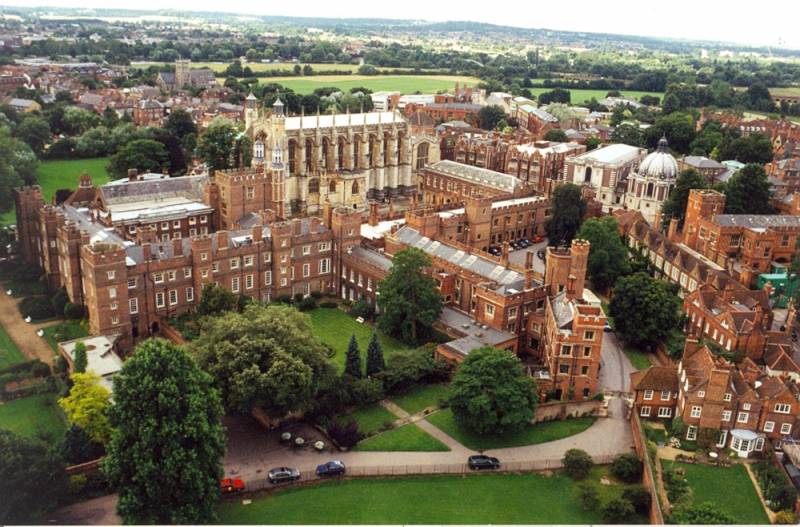
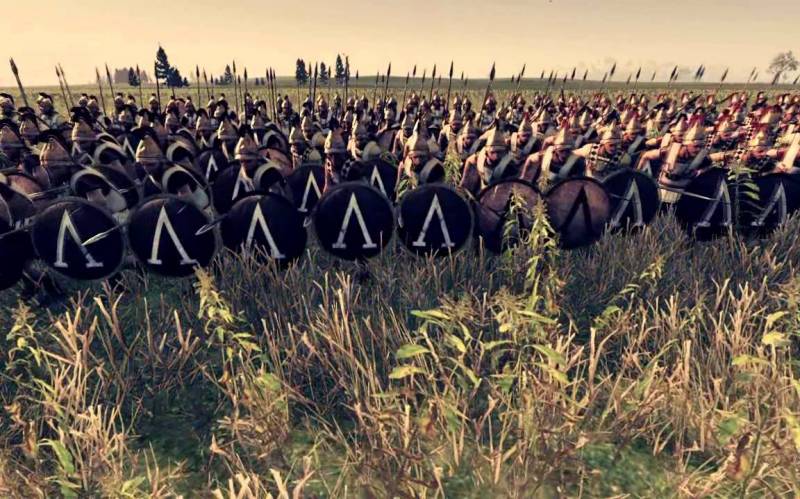
Information